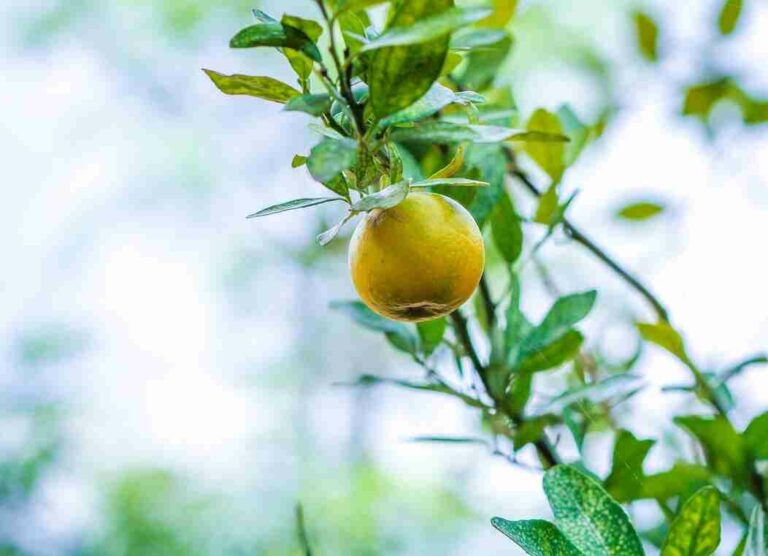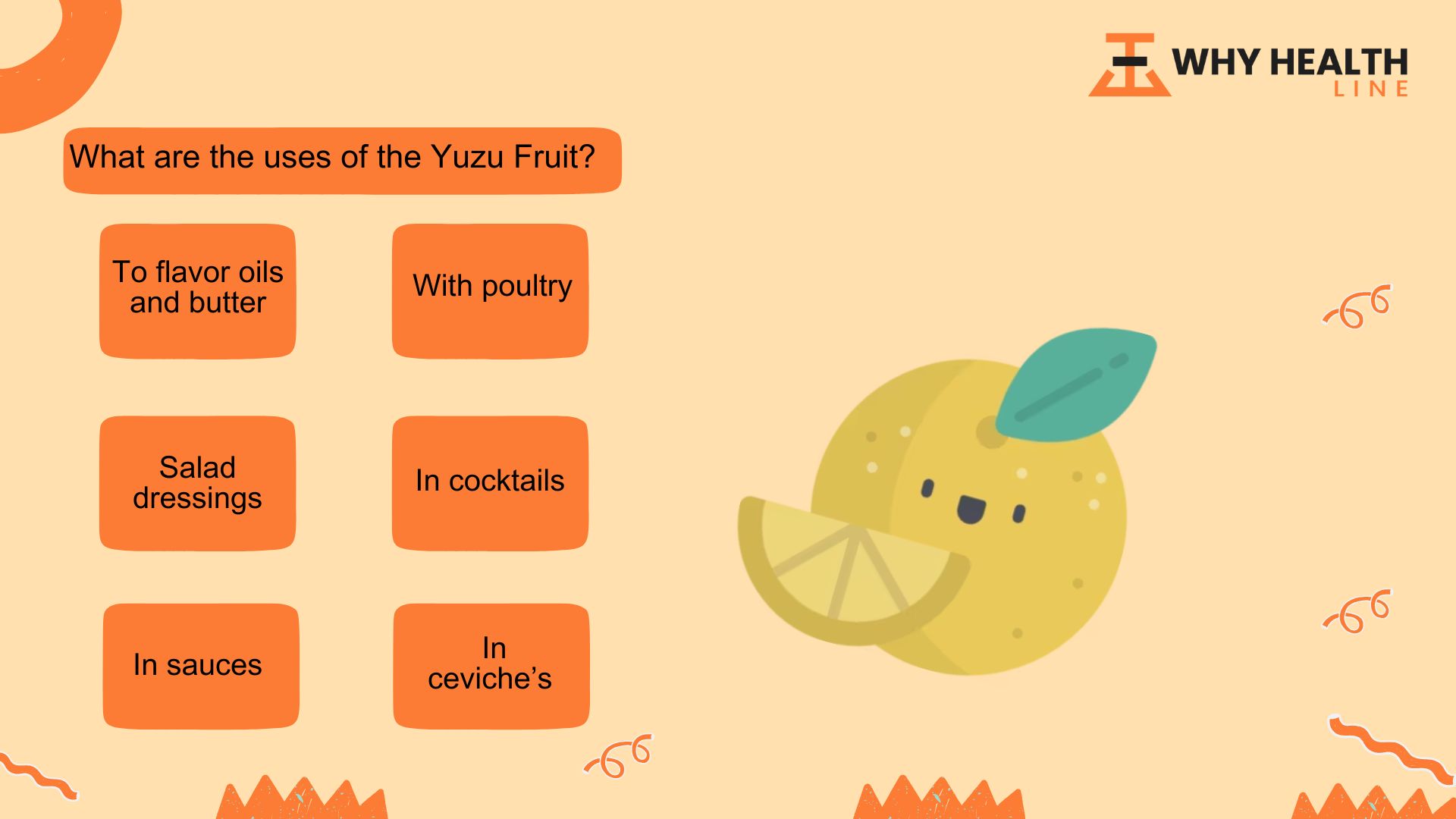
Yuzu fruit (Citrus Junos) is a hybrid citrus fruit commonly referred to as Yuja. Its origins were in China around 1000 years ago, and today it is found across Japan, Korea, and other regions worldwide.
It has a diameter of 2-3 inches (5.5-7.5 cm). It has a thick yellow skin and is more flavorful and significantly sourer than other citrus fruits, Yuzu oil is also widely utilized in perfumes, cosmetics, and aromatherapy.
Incredibly, this fruit could provide a variety of advantages, such as the reduction of inflammation as well as the promotion of heart health.
How to Cook with Yuzu Fruit?
Yuzu juice has a flavor that is very unique. A little goes a long way when using it in cocktails because it is even more vital than lemon or lime juice.
Mix drinks with a drop, treating it more like bitter than normal fruit juice. Yuzu is frequently used as a seafood spice, though it is usually used in smaller amounts than lemon or lime.
One drop of yuzu juice, for instance, might be added to a mayonnaise or brownies, or it could be mixed into a marinade for service or used to season an opened oyster. Try adding yuzu, along with soy, oil, and garlic, to sauces and marinades as well.
How to Use Yuzu Fruit?
There is no mystery involved in this; it is not rocket science. Similar to how you would utilize lemons, limes, and to a lesser extent, oranges, you can use it any way you wish.
Use the juice and zest in:
- Salad dressings
- In sauces
- In ceviche
- In cocktails
- To flavor oils and butter
- With seafood (great with oysters, naturally)
- With poultry
In Japanese cuisine, it is used in so many different ways. The zest makes a great garnish, while the juice is used in making sauces, vinegar, drinks, and chili pastes.

Where to Buy Yuzu Fruit?
A citrus fruit called yuzu is grown in Southeast Asia, China, and Japan.
- They require much care to develop and are grown in subtropical areas.
- Yuzu can always be purchased fresh in Japanese markets; peel it into wedges just before using.
- Frozen yuzu juice concentrate is also offered to enjoy this flavor without the hassle of peeling.
- Due to the yuzu citrus tree’s limited growing areas, it is not always possible to buy it in stores.
If you live close to the US state of Florida, your best option could be to look for some during the late fall through winter at farmer’s markets or grocery stores.
Different Health Benefits of Using Yuzu Fruit
Contain Powerful Antioxidants
Antioxidants neutralize free radicals, molecules that react and harm cells and trigger an increase in oxidative stress when their levels increase within the body. This type of stress is linked with numerous ailments.
Foods rich in antioxidants are believed to lower the chance of developing brain diseases and heart diseases, Type 2 diabetes, and some types of cancer. Yuzu is a rich source of antioxidants, including carotenoids, vitamin C, and flavonoids.
Vitamin C is not just an antioxidant, it can also help replenish other antioxidants within your body, like vitamin E.
Furthermore, a test tube study revealed that limonene, an aroma compound found in the skin of the yuzu, and other fruits of the citrus family, functions as an antioxidant and can help reduce inflammation. It is particularly effective for treating certain types of asthma.
It May Improve Blood Flow
Blood clotting helps stop bleeding following an injury or cut. But, too much clotting may result in blockages of small blood vessels and large ones and can cause heart disease, heart attack, and stroke.
It is interesting to note that test-tube and animal studies show that yuzu extracts may possess anti-clotting properties by preventing the formation of platelets.
These properties are related to two flavonoids of key importance, including naringin and Hesperidin in the peel and flesh.
Through enhancing blood flow, the yuzu extract could reduce the chance of developing coronary heart diseases. However, more research is required before it is recommended for this purpose.
FAQs
What Does the Yuzu Fruit Taste Like?
Yuzu has a flavor similar to a lemon mixed with mandarin orange, while some have a strong grapefruit flavor. It has a strong floral fragrance and is harsh and acidic.
- The fruit has large, rough seeds and has the appearance of a small grapefruit. Depending on how ripe, it is, it might be yellow or green.
- Yuzu fruits, which are fragrant, can reach a size of an orange, however, they typically range in size from 2.16 to 3 inches.
Although yuzu fruit is too sour to be consumed as a fruit, it nonetheless adds a citrus flavor to many dishes and drinks. Similar to how lemon zest is utilized in the West, the zest is used in Japan.
Is Yuzu Fruit the Same as Lemon?
When yuzu is fully mature, they have a yellow color, making them somewhat similar to lemons. Yet, despite having rather rough skin, it has an orange-like form.
Moreover, compared to lemons, its seeds are thicker and bigger. It has a strong citrus aroma with sweet floral notes, similar to orange flower (bloom) water.